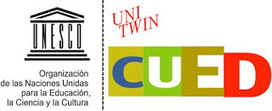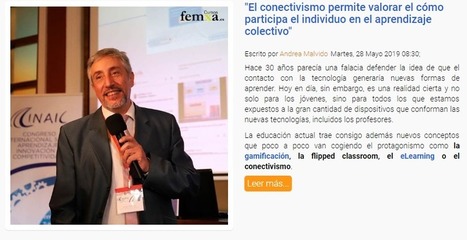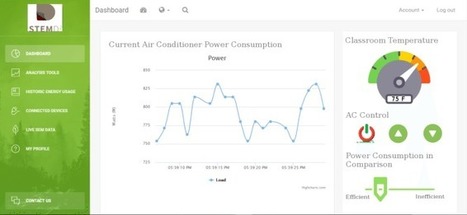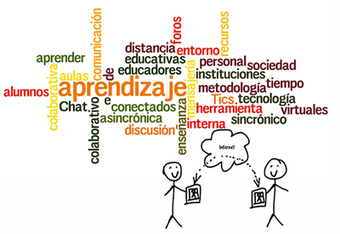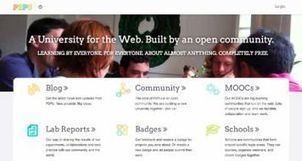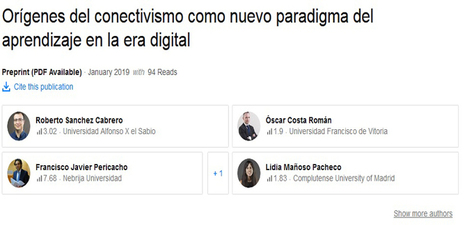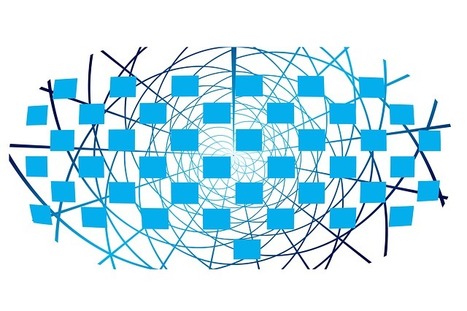El conectivismo, cuya traducción correcta al español sería conectismo (raíz “conect-” y sufijo “-ismo”, en analogía con otras palabras como común-ismo, anarqu-ismo o liberal-ismo), es una teoría del aprendizaje para la era digital que ha sido desarrollada por George Siemens y por Stephen Downes basado en el análisis de las limitaciones del conductismo, el cognitivismo (o cognitismo) y el Constructivismo (pedagogía) (o constructismo), para explicar el efecto que la tecnología ha tenido sobre la manera en que actualmente vivimos, nos comunicamos y aprendemos.
El conectismo es la integración de los principios explorados por la teoría del caos, las redes neuronales, complejidad y auto-organización. El aprendizaje es un proceso que ocurre dentro de una amplia gama de ambientes que no están necesariamente bajo el control del individuo. Es por esto que el conocimiento (entendido como conocimiento aplicable) puede residir fuera del ser humano, por ejemplo dentro de una organización o una base de datos, y se enfoca en la conexión especializada en conjuntos de información que nos permite aumentar cada vez más nuestro estado actual de conocimiento.
Via
Edumorfosis



 Your new post is loading...
Your new post is loading...



